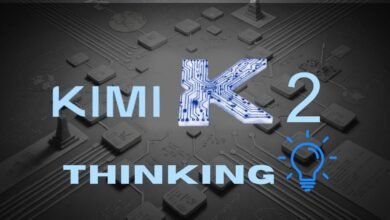Will AI Coding Tools Ever Achieve Full Autonomy?

▼ Summary
– AI coding tools currently assist with tasks like code completion and error correction but are not yet capable of full autonomy in software development.
– Researchers from several universities identified key challenges, including handling large codebases, logical complexity, and long-term planning.
– Current AI models struggle with complex debugging and often produce hallucinations or irrelevant suggestions without human context.
– Improving human-AI collaboration requires better interfaces, uncertainty communication by AI, and capturing user intent in code.
– Human oversight remains essential for trust and verification, even as agentic AI and evolutionary algorithms show promise for future advancements.
The question of whether AI coding tools will ever achieve complete independence from human oversight remains one of the most debated topics in software development. While these tools have dramatically improved productivity by automating routine tasks like code completion and error detection, true autonomy involves far more than just generating syntax. A recent study from leading academic institutions suggests that despite rapid progress, fundamental barriers still prevent AI from fully replacing human developers.
Researchers from Cornell, MIT, Stanford, and UC Berkeley presented a paper at the 2025 International Conference on Machine Learning outlining why current AI systems fall short. According to Armando Solar-Lezama of MIT CSAIL, while AI tools are already indispensable, they lack the depth of collaboration that human programmers offer. The gap isn’t just technical, it’s conceptual. AI struggles with large-scale codebases, long-term structural planning, and nuanced logical reasoning.
One major challenge involves debugging complex issues like memory safety vulnerabilities. As Koushik Sen from UC Berkeley explains, fixing such errors often requires understanding code semantics, tracing root causes far from the visible crash point, and sometimes redesigning entire subsystems. Current large language models frequently hallucinate solutions or propose flawed fixes because they can’t yet replicate the holistic understanding a human engineer brings to the problem.
A recurring theme in the research is the irreplaceable role of human intuition and contextual knowledge. Effective software development relies on shared vocabulary, architectural metaphors, and implicit intent, elements that machines find difficult to interpret or replicate. Solar-Lezama emphasizes that today’s AI interfaces remain narrow compared to the rich, dynamic interaction between human colleagues.
Improving collaboration between developers and AI is seen as a critical next step. Shreya Kumar from the University of Notre Dame points out that developers often spend more time crafting the perfect prompt than writing code itself, a sign that the tool, not the human, is still driving the process. The goal is to shift toward systems that ask clarifying questions, express uncertainty, and proactively seek missing context.
Abhik Roychoudhury of the National University of Singapore highlights another key hurdle: capturing user intent. Human engineers constantly infer what a program should do, compare it to what it actually does, and bridge the gap. If future AI systems can integrate this kind of intent-aware reasoning, they’ll come much closer to mimicking human-like coding.
Looking ahead, many experts believe agent-based AI systems show great promise. These could autonomously process requirements, generate code, and even self-improve using techniques like evolutionary algorithms. Roychoudhury predicts that automation in software engineering is inevitable and accelerating. However, he also cautions that trust will become a major concern as AI takes on more responsibility.
This is why human oversight remains essential. Kumar stresses the need for a “check and verify” process to ensure reliability and security. Solar-Lezama agrees, noting that even in a highly automated future, humans will still define what needs to be built, just at a higher level of abstraction.
In the end, AI may well become a capable “coder,” but it’s unlikely to earn the same trust as a human team member anytime soon. The real frontier lies in defining how humans and AI agents collaborate, what tasks each handles best, and where the boundaries of autonomy should be drawn.
(Source: Spectrum)
